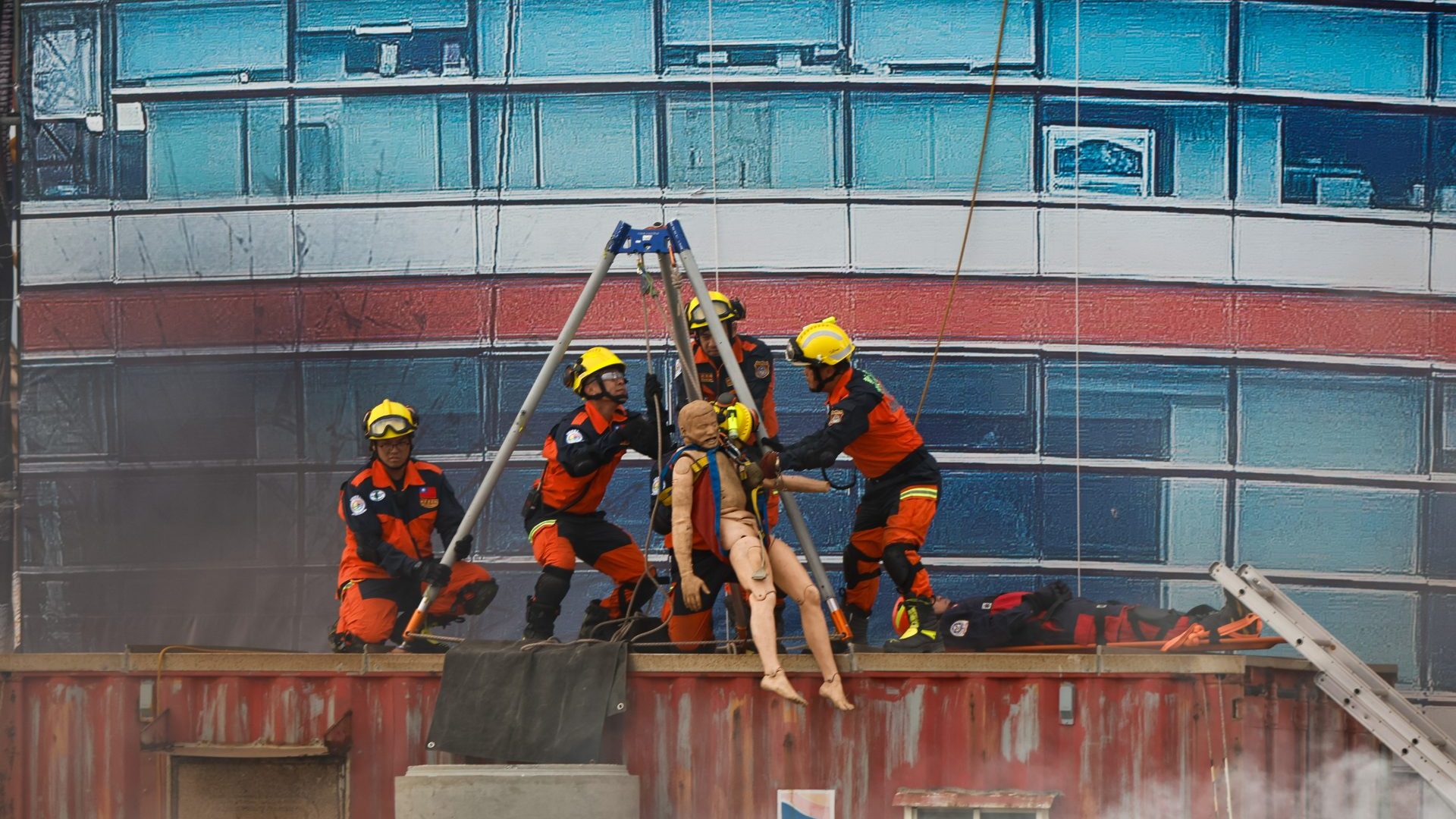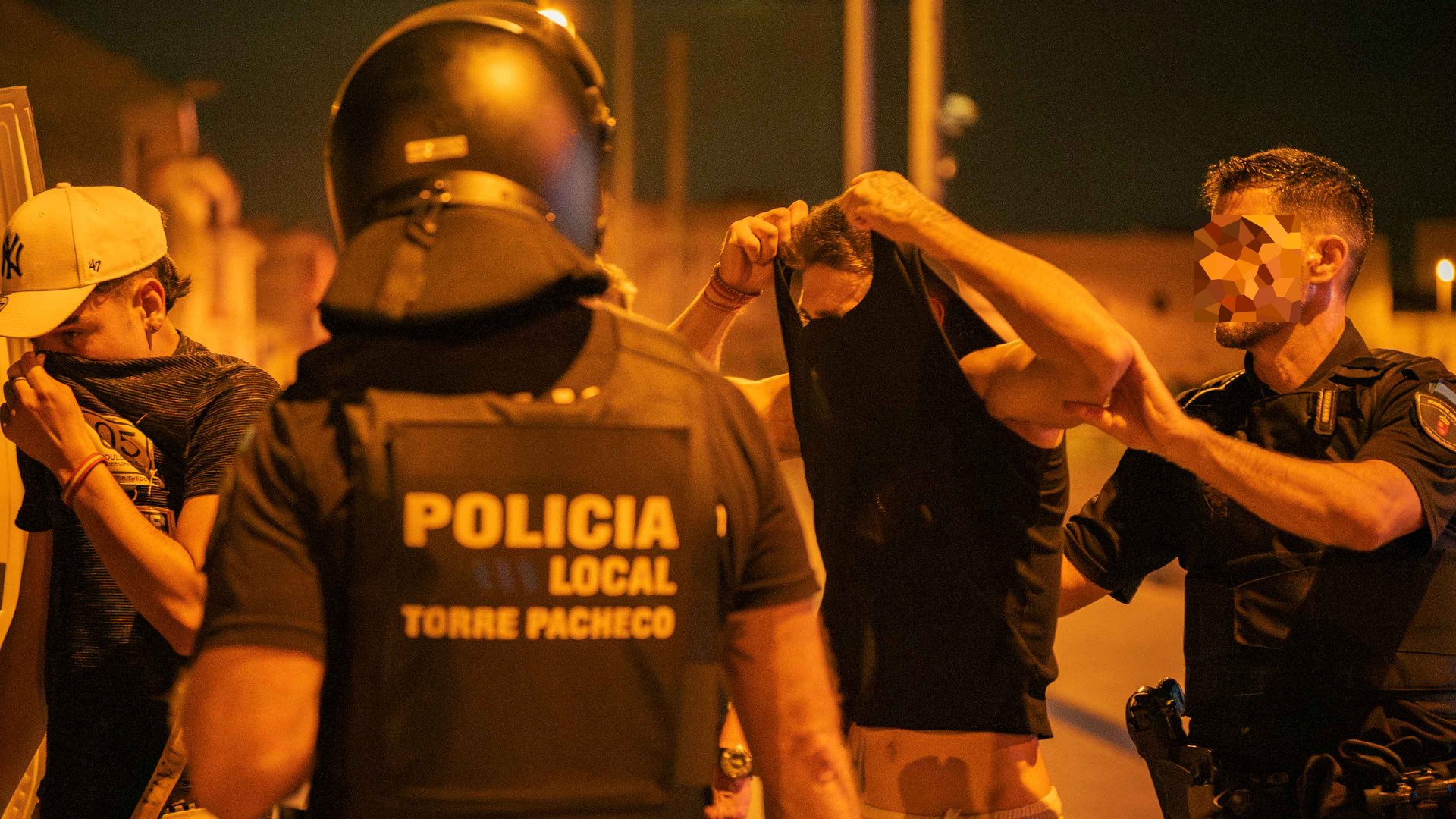
Earlier this month, sirens rang out across Taiwan. Traffic came to a halt as people rushed into stores, offices, or metro stations.
This was the annual Wanan drill, a series of air-raid exercises held annually across Taiwan to practise sheltering in place. This year’s drill was part of a series of military exercises. The government is trying to drive home the importance of these drills in preparing for wartime scenarios.
In one case, the authorities held a press conference at a PX Mart supermarket to demonstrate how store staff would take customers to shelters. A photographer friend who was reporting on the drills told me that the actual customers at the PX Mart must have felt completely bewildered, as they were just trying to do their shopping. Instead they ended up as part of the press gaggle.
Yet, in general, the public did not panic. Later reports found that people generally felt the drills were no different this year. The Wanan drills, after all, have been going on for many years and have become a feature of the annual landscape of holidays and other public events in Taiwanese society.
Just as we have days off for New Year, the Dragon Boat holiday, and the Tomb Sweeping holiday, we simply have that one odd day every year where we have to stop in place for 30 minutes and take shelter, in preparation for some hypothetical future conflict in the Taiwan Strait. Sometimes incidents that occur during the Wanan drill feature on the news and become fodder for memes and humour. One year, close to a decade ago, a man ran around in the streets in a dinosaur costume. The police slapped him with a big fine.
This year, a woman was stuck on an escalator in a store during the drill. But if she had carried on up the escalator and stepped off, she would have potentially faced a fine. So, instead, she walked in place against the moving escalator for a good 30 minutes throughout the drill.
Suggested Reading

It isn’t a general election in Taiwan, but it feels like one
This is not to mean that Taiwanese are not aware of the threats we face from China. A recent nationwide recall vote, organised against legislators viewed as pro-China, proved unsuccessful, but it still demonstrated how Taiwanese across the nation feel threatened by their large neighbour, whether in the form of external military threats or domestic politicians who are perceived as overly sympathetic.
Since 2019, Taiwan has also seen a wave of young people participating in civil defence initiatives that are aimed at readying everyday citizens for war.
In the years since 2022, when Nancy Pelosi visited Taiwan, Chinese threats to Taiwan have been on the uptick. Chinese air incursions into our airspace and naval activity around Taiwan were once rare. Now they occur on a near-daily basis. China seems intent on forever pushing the boundaries of what is considered normal military activity as part of its “grey-zone” warfare directed against Taiwan.
Chinese threats against Taiwan are not new, even if they have escalated recently. China has had missiles pointed at Taiwan for decades. And even if it has sought to convey a sense of threat to Taiwan, too often this simply becomes another news story. Beijing’s threats are now starting to feel repetitive, rather than genuinely representing some new level of escalation, which is what China would perhaps like.
That may be a double-edged sword. On the one hand, simply going about everyday life uncowed by China, or maintaining democratic institutions without thinking much about it, could be a means of resisting China’s psychological warfare. Or, depending on who you talk to, it may mean that Taiwanese society is complacent and is not taking Chinese threats seriously.
Nevertheless, looking back at Taiwanese politics over the past decade, there have been periods when the public has been energised by social movements or elections when the Chinese threat has been a big issue. The public at large is sometimes highly driven to take action. At other moments, it is not.
But for Taiwan at large, life goes on as usual, even as the threat of war drums on somewhere in the background.
Brian Hioe is a writer and DJ from Taipei


